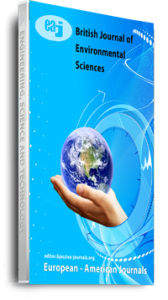If well managed, municipal wastewater can be an alternative source of water supply for agricultural, industrial, and domestic purposes especially at a time when climate change and rising population is exerting so much pressure on available fresh water sources. However, the success of such an idea is largely dependent on the perception and acceptability of reclaimed municipal wastewater by the public. This study examined the acceptability of treated municipal wastewater reuse by residents of Federal Capital City of Nigeria. Results of the study revealed that in general, the people have positive perception on the use of treated municipal wastewater in the capital city. Under the domestic category respondents had the most positive perception for using treated wastewater to flush toilet (3.57). Dust control during construction (3.59), watering of parks (3.54), fire fighting (3.47), watering of golf courses (3.40) and lawn (3.41) were the top options of choice. For industrial purpose category, use of treated wastewater for block production, paper mills and paint production came tops with 3.5, 3.41 and 3.39 respectively. Commercial car wash with a mean of 3.32 topped commercial use of treated municipal wastewater. The respondents also consented to using treated municipal wastewater to improve agriculture. However, analysis between the groups showed that the positive perception is more inclined to outdoor use and industrial use. The results showed respondents had least positive perception for domestic use and commercial use of treated municipal wastewater. Meanwhile, respondents rejected the idea that treated municipal wastewater should be used to boost water supply in the FCT. Effluent discharge will be resourceful in improving agriculture and for industrial use as more respondents have no objection to its application in agriculture and industry. Wastewater reuse should be considered as an alternative source for non-potable water use whenever there is a case of water crisis or as a means to prevent water stress in the Federal Capital City and in Nigeria at large. Public knowledge and acceptance is crucial in wastewater reuse, as such, whenever a reuse programme is to be implemented, public consultation and confidence building should be embarked on.
Keywords: municipal wastewater, treated wastewater reuse, wastewater reuse options, wastewater reuse perception, water management

